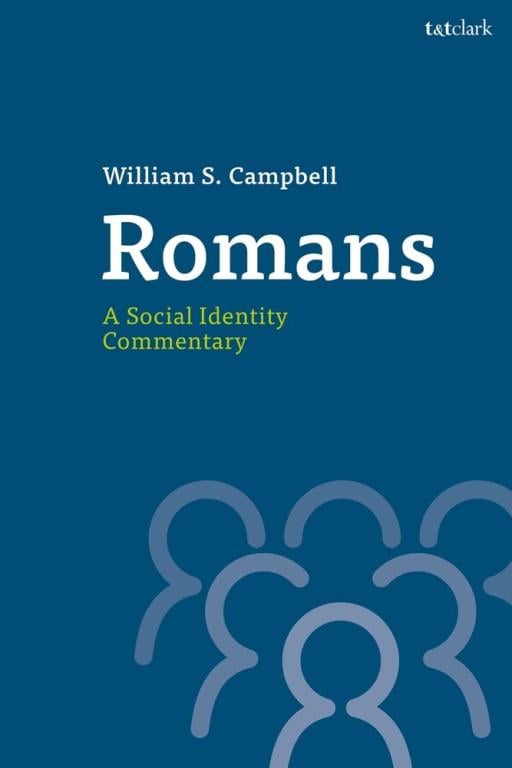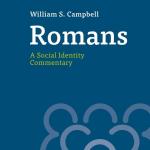Q. You are right that not infrequently Paul uses the rhetorical device of diatribe and also the device of rhetorical questions to further his arguments. This however does not amount to alternating between diatribal sections and epistolary sections of the document. The non-diatribal material does not reflect epistolary anything, other than at the outset and conclusion of the document. Rather, we have a progressive series of arguments and they follow rhetorical not epistolary rules and categories. The need ito see this document as overwhelmingly an oral and rhetorical discourse meant to be read out loud at Rome to a group or groups, and not primarily a text to be studied is crucial.
As for the rhetorical questions which include the word ‘not’ they do indeed expect a negative answer, though not requiring a formal response. This is because they are conveying a Pauline concept in question form. It seems particularly off target and not dealing with the grammar of the sentence of Rom. 9.6 to read that rhetorical question to mean ‘Are not all Israel Israel?’ This reading is really not very possible in light of the previous question—’it’s not as though God’s Word has failed, has it’? The only reading that explains why Paul has to ask that question is answered in the context of Rom. 9 by Paul’s anxiety that so many Jews have rejected Christ, and this leaves them outside or broken off from the people God, at least temporarily. No, the literal reading of the second rhetorical question has to be noting how the first word is ‘ou’. i.e. NOT which requires a negative answer, ‘Not all those from Israel, are Israel [are they]? Answer NO, and Paul proceeds to give the example of Jacob and Esau with the former being the very founding father of Israel in the sense of giving the group his name, and the latter being excluded and leading to a separate people—the Edomites. If Paul really believed those Jews who had rejected Christ had NOT been broken off from the people of God, it is difficult to understand why he himself was prepared to be anathema in God’s view if only they could be back in God’s graces in his place. How would you respond to this?
A. The problem in discussing the status of Jews who were not convinced that messianic time had arrived is partially the metaphorical language used. Thus you speak of Jews been broken off, whereas this image could refer to broken branches not completely separated for the specific purpose that others might be grafted in. Metaphors are not the same as concepts and only the broad meaning can be assumed otherwise they become allegories where every word and phrase stands for something specific. Paul uses many metaphors particularly where he cannot or will not be over-precise. Paul’s willingness to become anathema tells us beyond any debate that he was deeply and permanently attached to his own people as God’s people. It caused him much grief that the majority could not be convinced, but attributed this to God’s will and plans to allow space and time for the gentiles to come in. It is not warranted that, because Paul reveals the depth of his concern, to presume from this the worst possible judgement upon his people. In fact Paul later will argue that the love of God for them is unbroken and his gifts and calling are irrevocable (11.29).
With specific regard to the translation of Rom 9.6 note that I do not argue for a textual emendation nor deny any particular word. My translation ‘For not all those from Israel are Israel, are they not ?’ is simply based on whether it is a rhetorical question and how it should be presented. I could also have translated ‘For are not all from Israel Israel ?’ Indicating the answer to be ‘yes of course they are’(Commentary, 250). Rhetorical questions differ from ordinary questions in that they include a suggestion that indicates the way the speaker is thinking. So if I say it will rain today, will it not ? This means I am not denying the possibility of rain but even suggesting that this will happen. 9.6a denies that the word of God has failed. It is in answer to this possibility of failure that Paul claims that all those from Israel are Israel, are they not? (Thus affirming God’s word to Israel). Then he explains that not all the children of Abraham are his seed (of the promise), but only those through Isaac are named his seed. Note that Paul does not make a statement regarding Israel, but asks a questions suggesting an affirmative answer, that all Israel are in fact Israel. The entire passage does not deal with selection within Israel, but only with selection within Abraham’s children that led to the emergence of the people Israel (Jacob). Even if you do not accept my reading of Rom 9.6b what follows is not a selection within Israel but sets out how Israel came into being.














